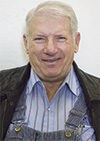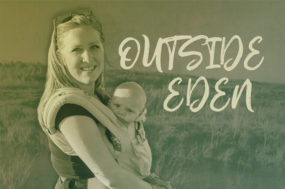Most of us have had at least one mentor or coach somewhere in our lives who has given us a special gift of positive outlook; an attitude of “I can do that!”
In my life, those with the most influence were not in actual coaching or teaching positions. In my life, as is the case for most of us, the mentor is unaware of the impact he or she is having. For some, it may be years before the realization of the impact one has had on the life of another hits home; for others, it may never be evident.
At the time I knew Nyal Wadley, of rural Pleasant Grove, Utah, he was in his sixties. He had lost his father when he was almost a teenager. To help his family survive, he commandeered an abandoned manure spreader, and borrowed a team of horses. He found that the whole community would rather pay him to haul manure than to deal with it themselves. He picked up the nickname of “Muck”. After a while he had come by his own team, and then a larger manure spreader. He then became “Super Muck”.
Short on formal education and long on wisdom, Nyal eventually had his own farm just north of Pleasant Grove. I met Nyal in 1965. I was in the area to attend college, and had a job working for one of Nyal’s neighbors that included room and board. The fellow I was working for, unbeknownst to me, had cancer. I arrived in the area the first part of February, and helped with the family’s dairy herd while attending BYU. My employer, Grant Richards, died in May. I couldn’t see anything to do but stay and help the family with the farm and cattle.
Robert Richards, then 16, and I were the farmers that summer. Nyal was the local fix-it guy. He also did custom hay baling. While several of the neighbors were helpful, it was Nyal who knew just the right questions to ask to know if I knew how to handle a job on the farm.
After questioning me as to how we irrigated in my part of Idaho, he explained how it was done in Pleasant Grove. “Here,” he explained, “We have six to eight inches of topsoil. Under that is about forty feet of coarse gravel. If you try to make sets on the water like you’re used to, it will run out about ten feet, and then go straight down. You have to set a big head of water, so it gets to the end of the field in about two hours. Don’t plan on getting much sleep when you have the water.”
He had, in the same breath, told me how to do a job, and also explained why it had to be done that way! He had a gift with words, at least as far as I was concerned. This manner of giving direction was repeated over and over with every question I had. I realized he knew what he was talking about, and he saw me taking his direction. In addition to learning how to do things, he taught me how to teach. And I’m sure he had no idea he was doing this. I hope he realized how much I appreciated his guidance.
Robert Richards went on to become a physician. On one visit to the area, I was able to speak to him. He told of working at a clinic during his residency. As was the norm, he was short on sleep. He only partially glanced at the patient’s name as he entered the exam room. He said, “Hello, Mr. Wadley, how are you today?” The patient replied, “Robert, is that you? What in the hell are you doing in here?” At that point, it was impossible to either not recognize Nyal, or to hold a straight face. It was a good meeting, since Robert and I shared the same respect for the man.
A coach? A mentor? A teacher? No, Nyal was just a home-grown farmer, but with more common sense and concern for others than all of the above.
Thanks Nyal. Thanks a lot. PD










